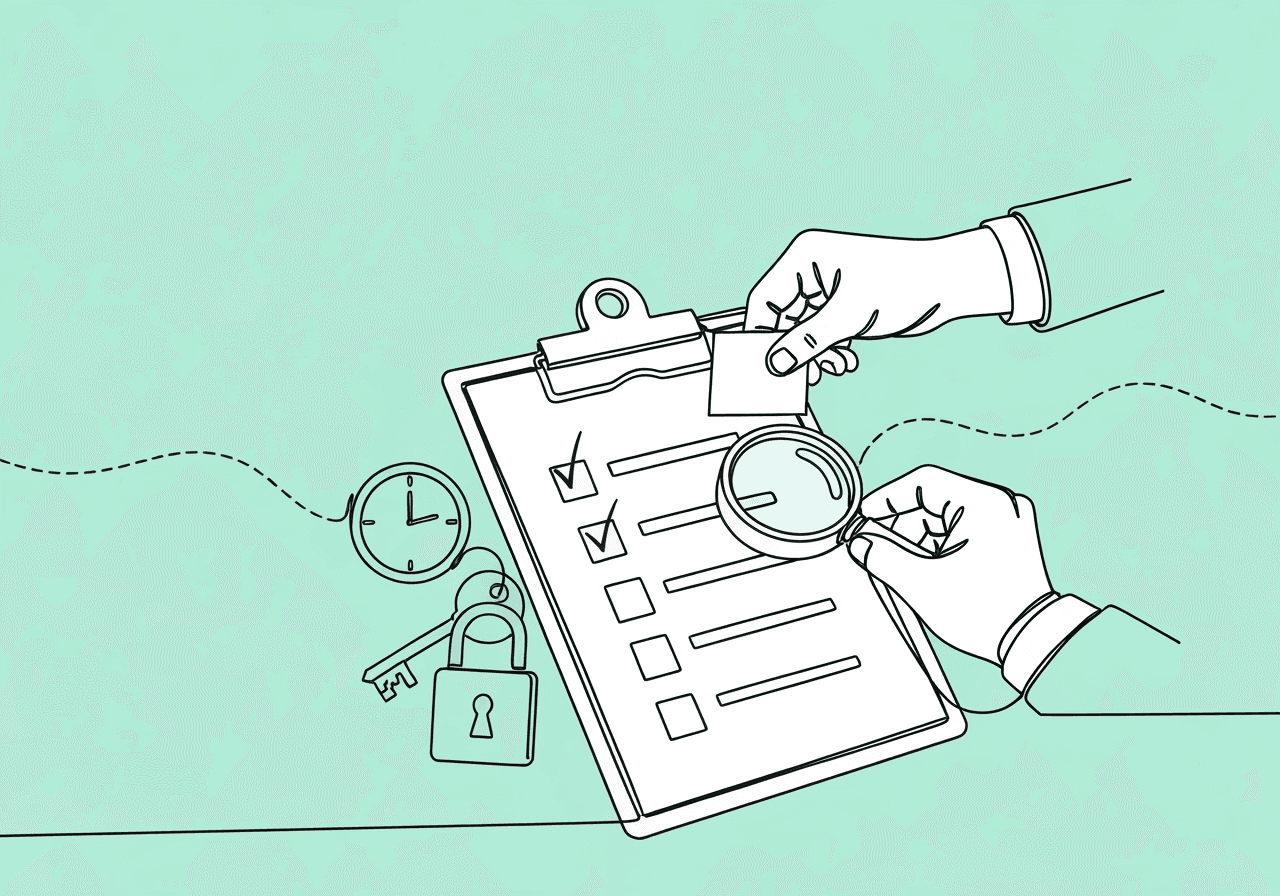BCBA Ethical Documentation Best Practices

Applied behavior analysis (ABA) demands a lot from Board Certified Behavior Analysts (BCBAs), who balance client needs, regulations, and team oversight daily. In this environment, BCBA ethical documentation forms the backbone of trustworthy practice. Accurate records not only track progress and inform interventions but also safeguard against misunderstandings that could harm clients or careers. With rising scrutiny from insurers, families, and the Behavior Analyst Certification Board (BACB), lapses in documentation can lead to ethical pitfalls, as highlighted in the BACB's enforcement reports.
This article explores BCBA ethical documentation through the lens of the ABA ethics code, offering practical guidance for BCBAs.
Here are the key takeaways:
- Adherence to the ABA ethics code is mandatory for all documentation, emphasizing principles like accuracy, confidentiality, and timeliness.
- BCBAs commonly face ethical dilemmas related to billing accuracy, maintaining client confidentiality across teams, and ensuring complete supervision records.
- Implementing documentation best practices, such as using standardized templates, ensuring timely entries, and conducting regular self-audits, is crucial for compliance.
- Breaches in ethical documentation can result in severe consequences, including legal action, insurance fraud investigations, and BACB sanctions like certification revocation.
What Are the Key Ethical Principles in BCBA Ethical Documentation?
The foundation of BCBA ethical documentation lies in the Ethics Code for Behavior Analysts, which outlines responsibilities that ensure client welfare and professional accountability. This code, enforced by the BACB, emphasizes four central principles: benefit (maximizing positive outcomes), respect (honoring autonomy and dignity), fairness (equitable treatment), and trustworthiness (honesty and reliability). The BACB states that behavior analysts must create and maintain records that accurately reflect services provided, decisions made, and progress observed, avoiding any fabrication or omission that could mislead stakeholders.
Documentation serves multiple roles in ethical practice. It supports continuity of care, as incomplete notes might delay effective interventions. For instance, Section 2.09 of the code requires behavior analysts to establish clear documentation procedures, including timelines for recording sessions and sharing records only with authorized parties. This principle extends to supervision, where BCBAs must document oversight of Registered Behavior Technicians (RBTs) to verify competence and ethical adherence.
Practitioners often reference the code's guidance on integrating these principles into daily workflows. By doing so, BCBAs not only comply with standards but also build trust with families and teams. The BACB stresses that ethical documentation is not optional—it's a duty that underpins the entire ABA framework.
How to Navigate Common Ethical Dilemmas in BCBA Documentation
BCBAs frequently encounter dilemmas in documentation best practices, particularly around accuracy, confidentiality, billing, and supervision. These challenges arise from competing priorities, such as balancing detailed client insights with time constraints or navigating insurer demands.
Accuracy poses a main issue: How do you document nuanced behavioral data without bias? Section 2.11 of the ABA ethics code mandates truthful reporting, yet pressures like high caseloads can tempt shortcuts. For example, overstating progress to justify continued services risks misleading payers, violating trustworthiness. Confidentiality adds complexity, especially in shared electronic health records. Section 2.05 requires protecting identifying information, but dilemmas emerge in multidisciplinary teams where consent forms may lag behind urgent consultations.
Billing dilemmas often intersect with documentation. BCBAs must justify services under CPT codes like 97153 for adaptive behavior treatment, ensuring notes demonstrate medical necessity without inflating claims. According to the BHCOE, inadequate billing documentation leads to claim denials, but ethical over-documentation to secure reimbursement can border on misrepresentation. Supervision presents another hurdle: Documenting RBT oversight requires specificity—dates, topics, and outcomes—per BACB standards, yet vague entries might imply insufficient guidance, as noted in enforcement cases from 2019-2021.
To resolve these, BCBAs should consult the code's decision-making process: Identify the issue, reference relevant standards, evaluate options, and document the rationale. This structured approach, drawn from BACB guidelines, helps mitigate risks while upholding the ABA ethics code.
Best Practices for Implementing BCBA Ethical Documentation
Adopting documentation best practices empowers BCBAs to meet ethical obligations efficiently. Clarity starts with standardized templates for session notes, progress reports, and supervision logs, aligned with the BHCOE's ANSI-accredited standards. These ensure every entry includes who, what, when, where, why, and how, reducing ambiguity. For example, use objective language like "Client exhibited 3 instances of target behavior during 30-minute session" rather than subjective interpretations.
Timeliness is crucial—complete notes within 24-48 hours to capture details accurately. Tools like HIPAA-compliant software facilitate this, allowing secure mobile access while enforcing access controls. Completeness demands including modifications to treatment plans and rationale, supporting audits and transitions. The code's Section 2.09 advises retaining records for at least seven years, with regular self-audits to verify compliance.
For billing and supervision, best practices include segregating administrative time from billable activities and logging supervision distinctly—e.g., "Individual supervision on data collection ethics, 1 hour, via Zoom." The BACB recommends training teams on these protocols to foster accountability. Additionally, integrate cultural sensitivity by noting family preferences in records, ensuring respect for diverse backgrounds.
- Your documentation policy should outline clear formats and regular review cycles.
- Using checklists for key elements, such as consent forms and progress metrics, ensures nothing is missed.
- For ambiguous cases, seek peer consultation and be sure to document these discussions.
- Conducting quarterly audits helps identify recurring issues and informs necessary training adjustments.
These steps, rooted in authoritative guidelines, transform ethical documentation from a chore into a proactive safeguard.
What Are the Consequences of Breaches in BCBA Ethical Documentation?
Ethical breaches in BCBA ethical documentation carry significant repercussions. The BACB's enforcement process begins with complaints or self-reports, leading to investigations based on submitted evidence. According to the BACB's enforcement summary, common issues include inaccurate reporting and confidentiality lapses, resulting in sanctions.
Possible outcomes range from corrective actions, such as mandatory ethics training, to severe measures like suspension or certification revocation. As detailed in the BACB's enforcement summary, documentation fraud contributed to some of the 26 revocations and invalidations from 2019-2021. Revocation bars practice for up to ten years, disrupting careers and client services.
Beyond BACB actions, breaches invite legal fallout. Insurers may deny claims or pursue fraud investigations, while families could file complaints leading to lawsuits. Professionally, a damaged reputation hinders employment. To avoid this, BCBAs must report suspected violations promptly, per Section 10.02, and maintain transparent records.
Frequently Asked Questions
What are the essential documentation requirements according to the BACB ethics code?
The BACB Ethics Code requires documentation to be accurate, timely, and complete, covering behavioral data, treatment plans, and supervision activities. Section 2.09 mandates clear procedures for record-keeping, including protection of confidentiality and retention for at least seven years. This ensures continuity of care and ethical accountability, with records accessible only to authorized parties.
How can BCBAs ensure confidentiality in diverse environments?
BCBAs should use encrypted, HIPAA-compliant platforms for digital records and secure storage for physical ones, limiting access via role-based permissions. It is best to obtain explicit consent before sharing information and train staff on disclosure policies. In diverse settings like schools or homes, anonymize data in discussions and document consent forms thoroughly. Regular audits help identify vulnerabilities, maintaining trust across environments.
What are the most common ethical breaches in ABA documentation?
Common breaches include inaccurate reporting, such as exaggerating progress for billing, and unauthorized disclosures of client information. The BACB processed 1,263 notices of alleged ethics violations from 2019-2021, with inaccurate reporting and confidentiality lapses among common issues in the professionalism and integrity category. These issues are often linked to time pressures or poor training.
How does the BACB enforce its ethical code?
The BACB investigates complaints through a review process, examining evidence like documentation and interviews. Per the code enforcement procedures, outcomes include consent agreements, corrective training, or sanctions like suspension. For instance, out of the 78 sanctions issued from 2019-2021, 26 involved revocation or invalidation, including cases of documentation fraud.
What steps should a BCBA take when faced with a potential conflict of interest in documentation?
First, identify the conflict per the BACB's decision-making guidelines, such as billing pressures affecting accuracy. Consult the ethics code, seek supervisor or peer input, and document the dilemma and resolution. If unresolved, report to the BACB or authorities under Section 10.02. This transparent approach protects clients and complies with trustworthiness principles.
What are best practices for documenting BCBA supervision of RBTs?
Document supervision with specifics: dates, duration, format (e.g., in-person), topics covered, and outcomes, retaining records for seven years as per BACB standards. Differentiate from direct services to meet billing rules, and include feedback on ethical topics like confidentiality. Use templates for consistency, and review quarterly to ensure competence. This supports RBT development while demonstrating oversight compliance.
Wrapping up, getting a handle on BCBA ethical documentation means sticking to the ABA ethics code's basics like accuracy and timeliness. By addressing dilemmas head-on and implementing documentation best practices like audits and standardized templates, BCBAs can mitigate risks and elevate client care. Evidence from BACB enforcement shows that proactive adherence prevents severe consequences, from certification loss to legal challenges. To apply these insights, start with a personal audit of your current records against the code, develop a team policy incorporating these standards, and integrate tools like secure note-taking apps to streamline the process.
Popular in Compliance & HIPAA
- 1
RBT Renewal Competency Documentation Guide for BCBAs
3,0486 min read - 2
BCBA Procedural Fidelity Checklist: Essential H-6 Guide
2,4906 min read - 3
ABA Documentation Checklist: RBT Compliance Guide 2025
2,2159 min read - 4
BCBA Service Discontinuation Ethics: BACB Guide
1,7426 min read - 5
BCBA Mandatory Self-Reporting: The 30-Day Rule Guide
1,7198 min read
Popular in Compliance & HIPAA
- 1
RBT Renewal Competency Documentation Guide for BCBAs
3,0486 min read - 2
BCBA Procedural Fidelity Checklist: Essential H-6 Guide
2,4906 min read - 3
ABA Documentation Checklist: RBT Compliance Guide 2025
2,2159 min read - 4
BCBA Service Discontinuation Ethics: BACB Guide
1,7426 min read - 5
BCBA Mandatory Self-Reporting: The 30-Day Rule Guide
1,7198 min read
Related Resources
Explore more helpful content on similar topics

Master BACB 1.06: Documenting Dual Relationships Ethically
Master BACB 1.06 ethical documentation for dual relationships and conflicts of interest. BCBAs: Explore FAQs on risks, boundaries, gifts, and resolution strategies to ensure seamless ABA compliance and protect your practice.

ABA Documentation Compliance Audit: BCBA Checklist
Master ABA documentation compliance audits with this essential BCBA checklist. Learn to verify session notes, data integrity, HIPAA protocols, and clinic record retention for seamless compliance and risk reduction.

BCBA Ethics 3.0: Essential Documentation Checklist
Navigate BCBA ethics 3.0 documentation requirements effortlessly with our essential checklist. Learn key practices for service agreements, informed consent, and confidentiality to ensure BACB compliance and streamline your ethical record keeping.